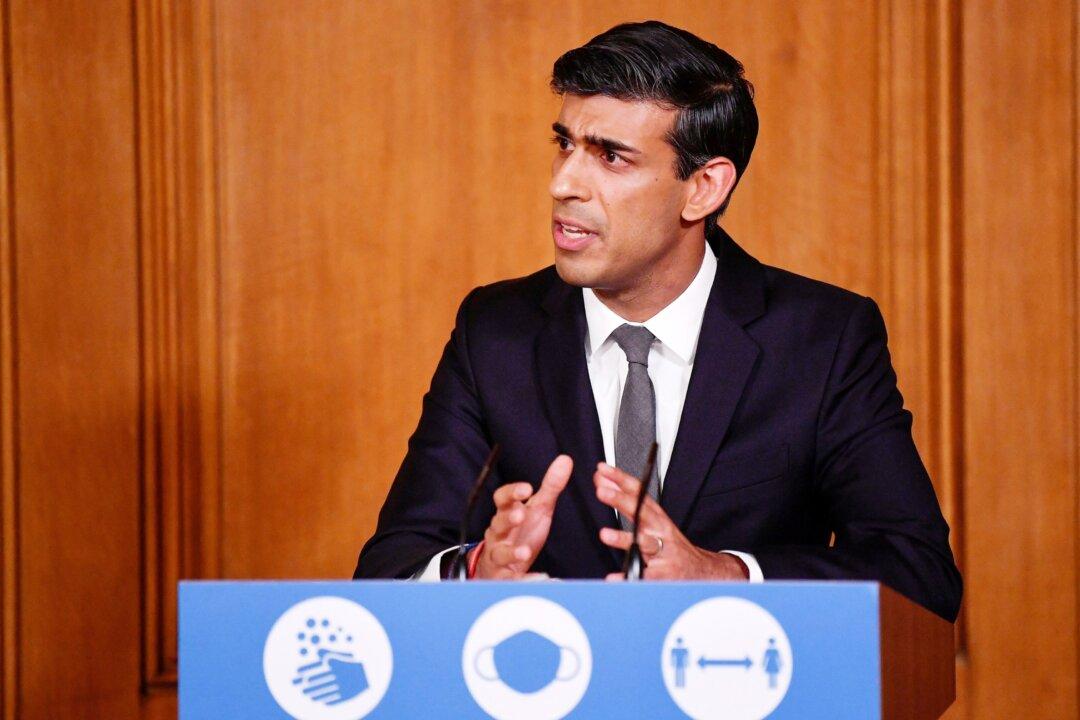The UK Chancellor of the Exchequer on Thursday announced another round of expansions to his support schemes, in an effort to alleviate financial difficulties caused by the restrictions imposed to curb the spread of the CCP virus.
The new expansions come as the broader Coronavirus Job Retention Scheme, which has been paying 80 percent of the wages of around 9.6 million people since March, winds up at the end of October.





